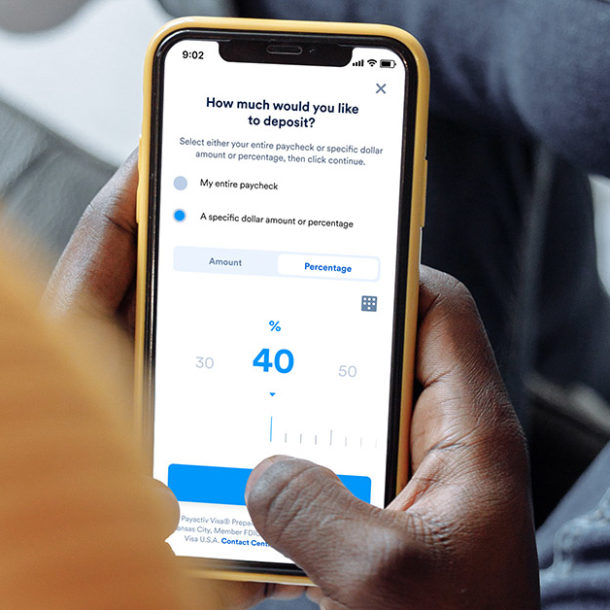
The Hidden Costs of Paycheck Advances: Why Employers Should Avoid Them
Whether it’s a medical bill, a broken appliance, or an auto repair, financial emergencies and unexpected expenses can happen to anyone. Many workers are unprepared to deal with these unwelcome surprises.
Employees in such situations often turn to their employers for a paycheck advance.
However, while granting financially strapped workers a paycheck advance gives them access to immediate cash for their short-term financial needs, it may have dire long-term implications that outweigh the benefits.
In this article, we’ll consider paycheck advances and examine the potential risks they introduce for companies and employees. We’ll also explore alternative services in the market and ways responsible employers can help workers avoid falling into a dangerous debt spiral and become more self-reliant in managing their expenses.
What Exactly is a Paycheck Advance?
A paycheck advance is a financial agreement between an employer and an employee where the employer grants the employee access to their wages before the regular payroll run. Workers are then expected to repay the advanced amount using their future wages.
Paycheck advances differ from payday loans, which are provided by third-party lenders and generally come with higher interest rates and fees. Payroll advances typically have more favorable interest rates and repayment terms, as they’re directly tied to a worker’s earned wages and are facilitated by their employer.
When Do Employees Typically Seek Paycheck Advances?
There are several reasons your workers may ask for paycheck advances. They may have encountered an unexpected, one-off expense, or there’s a mismatch in the timing of their expenses and income. (After all, most workers are paid every two weeks, but life happens every day!)
However, you may be surprised to learn that many workers use borrowed money to pay for basic expenses such as food, rent, and utilities. A 2023 survey conducted by Payroll.org revealed that 78% of Americans live paycheck to paycheck, a 6% increase from the previous year. In other words, more than three-quarters of Americans struggle to save or invest after paying their monthly expenses.
Similarly, a 2023 Forbes Advisor study showed that nearly 70% of respondents either identified as living paycheck to paycheck (40%) or—even more concerning—reported that their income doesn’t even cover their standard expenses (29%).
So, when people are faced with unexpected expenses, paycheck advances may seem like the only alternative to maxing out their credit cards, overdrafting their checking accounts, or taking out high-interest loans from predatory lenders.
The Downsides of Paycheck Advances for Employees
If you’re considering introducing payroll advances to help your financially struggling workforce, it’s important to be alert to the potential downsides of this move, which include:
High Interest Rates
Depending on the employer’s terms and conditions for the paycheck advance, employees may end up paying it back at a higher interest rate.
Less Money in the Next Paycheck
Workers who receive an advance will have less money in their next paycheck, which could lead to additional borrowing.
Dependency
Some employees might get into the habit of requesting advances frequently and start to rely on early payments.
Poor Financial Planning Skills
Becoming accustomed to having immediate access to funds they’ve not yet earned might prevent employees from developing essential budgeting and savings habits.
More Stress
If people don’t fully understand the terms and conditions associated with payroll advance programs, they can fall into a vicious cycle of debt, which will increase their stress levels rather than alleviate them.
Risks Employers Face with Paycheck Advances
Cash Flow Issues
When companies grant paycheck advances, they’re fronting funds their workers haven’t yet earned. If an employee decides to quit or is terminated before repaying an advance, the organization may have no way of recouping the unpaid balance, which could lead to cash flow issues.
An Additional Administrative Burden
Many businesses underestimate the effort involved in establishing and administering a payroll advance program. Tasks include defining eligibility criteria and loan terms, adhering to legal requirements, and navigating tax implications. In addition, the company will need to assign internal resources to administer and process employee advances.
Equity Considerations
If you agree to grant ad hoc advances to just a few workers, others may deem it discriminatory or a show of favoritism.
Legal and Compliance Headaches
If you offer your employees paycheck advances, you must abide by specific laws and regulations governing how they’re used and managed. For instance, the Truth in Lending Act (TILA) states that lenders (in this case, employers) must disclose certain information about any loans they make, such as repayment terms and interest rate/APR. Additionally, while the Federal Wages and the Fair Labor Standards Act permits payroll deductions that reduce a worker’s pay below minimum wage, some states prohibit this.
More Complex Accounting
Processing ad hoc off-cycle wage payments and following up on repayments can complicate your accounting process.
What are the Alternatives to Paycheck Advances?
The good news is that there are more responsible, less risky ways to help financially struggling workers than issuing payroll advances, such as:
Financial Counseling and Wellness Programs
Forward-looking employers are offering financial education programs and workshops aimed at helping their workers develop better money management skills. The best programs:
- Cover topics like budgeting, saving, investing, and debt management.
- Include financial counseling services, where people can discuss their financial concerns and aspirations in a confidential, supportive environment.
By equipping employees with the knowledge and tools they need to manage their finances better, employers will help reduce their need for immediate cash advances.
Earned Wage Access
Another option is Earned Wage Access (EWA)1 which gives employees the option of collecting pay for their work immediately after they’ve completed their shift instead of waiting for the traditional weekly or bimonthly pay period. Their wages are available immediately, and neither you nor your employees have to worry about processing paycheck advance paperwork.
Read the Case Study: Revolve relieves the administrative burden of processing pay advances.
Today, more organizations are issuing their workers prepaid payroll cards as a means to facilitate on-demand pay. Prepaid cards can be used in most places where people use credit and debit cards.
Prepaid cards also offer employees compelling convenience and safety benefits; for example, they:
· Don’t need to go somewhere to cash their checks.
· Don’t have to be in the office to get paid.
· Never need to request that lost or stolen checks be re-issued.
· Can control where their money goes.
Offering EWA coupled with a handy prepaid card is a great way to motivate your entire workforce and increase your company’s productivity and retention rates.
Harvard Researchers Weigh In on EWA
Around 40% of EWA users surveyed by Harvard researchers said they stopped using other quick-cash options—such as payday loans, pawn shops, or auto title loans—after using EWA. Another quarter said they used these products less often. According to the authors of the report:
“As more Americans live paycheck to paycheck, the EWA industry continues to grow, rapidly transitioning from a unique perk to a standard component of employee benefits in industries with high turnover rates.
“In the best case, EWA can be an innovation in financial inclusion—a “win-win” opportunity for employees and their employers. Users—even those with limited credit history—can access short-term liquidity while avoiding costly charges, debt collection activities, rollovers, and marks on their credit. They can gain access to a suite of helpful resources like savings and budgeting. They can stay at their jobs for longer, with less financial stress and higher levels of productivity.”
Choosing the Right On-Demand Pay Solution
Choosing the right on-demand pay solution for your business involves thoroughly researching different providers and systems and comparing their features, costs, and ease of implementation.
Features
The first step is conducting comprehensive research on different EWA solutions available on the market. Focus on providers and systems with a proven track record of success within your industry. In terms of features, be sure to evaluate the functionality offered by each EWA system, such as payment processing capabilities and the availability of customer support.
Cost
Cost is another important factor to consider when comparing EWA solutions. This includes initial setup fees and ongoing charges, like monthly subscription fees, transaction fees, or maintenance costs. Also, remember that a lower upfront cost may not always lead to long-term savings, especially if the EWA solution lacks important features or requires frequent maintenance.
Ease of Implementation
Any solution that’s difficult to set up or integrate with your existing HRIS systems can result in operational disruptions, errors, and decreased efficiency. Ensure your EWA provider offers adequate onboarding support and training resources to facilitate a smooth deployment.
Partner with Payactiv to Build a Supportive Financial Culture
If you’re an employer concerned about your employees requesting frequent paycheck advances, why not consider offering them EWA as part of their benefits package, such as that offered by Payactiv?
Payactiv offers a viable and far more satisfactory alternative to paycheck advances. Our approach helps ordinary employed people who find themselves in a tight spot and need cash at short notice. What’s more, we help provide financial wellness to employees by putting them on a path to self-reliance when budgeting and managing their expenses. With our budgeting, savings, and debt support tools—all in the Payactiv app2—your employees are empowered to control their financial futures.
Learn more about Payactiv’s Service, or book your demo now.
1 Earned Wage Access requires employer participation. Employees can only access a portion of the wages they have earned to date.
2 Standard data rates from your wireless service provider may apply.
All content provided on Payactiv.com/financial-learning/ is for informational purposes only. Payactiv makes no representations as to the accuracy or completeness of any information on this site or found by following any link from this site. Payactiv will not be liable for any errors or omissions in this information nor for the availability of this information. Payactiv will not be liable for any losses, injuries, or damages from the display or use of this information.
Get Payactiv for your business
© 2025 Payactiv, Inc. All Rights Reserved
24 hour support: 1 (877) 937-6966 | [email protected]
* The Payactiv Visa Prepaid Card and the Payactiv Visa Payroll Card are issued by Central Bank of Kansas City, Member FDIC, pursuant to a license from Visa U.S.A. Inc. Certain fees, terms, and conditions are associated with the approval, maintenance, and use of the Card. You should consult your Cardholder Agreement and the Fee Schedule at payactiv.com/card411. If you have questions regarding the Card or such fees, terms, and conditions, you can contact us toll-free at 1-877-747-5862, 24 hours a day, 7 days a week.
** Central Bank of Kansas City does not administer, nor is liable for earned wage access.
Payactiv holds earned wage access services (EWA) license number 2591928EWA with the Wisconsin Department of Financial Institutions.
Apple and the Apple logo are trademarks of Apple Inc., registered in the U.S. and other countries. App Store is a service mark of Apple Inc., registered in the U.S. and other countries.
Google Play and the Google Play logo are trademarks of Google LLC.
Galaxy Store and the Galaxy Store logo are registered trademarks of Samsung Electronics Co., Ltd.

